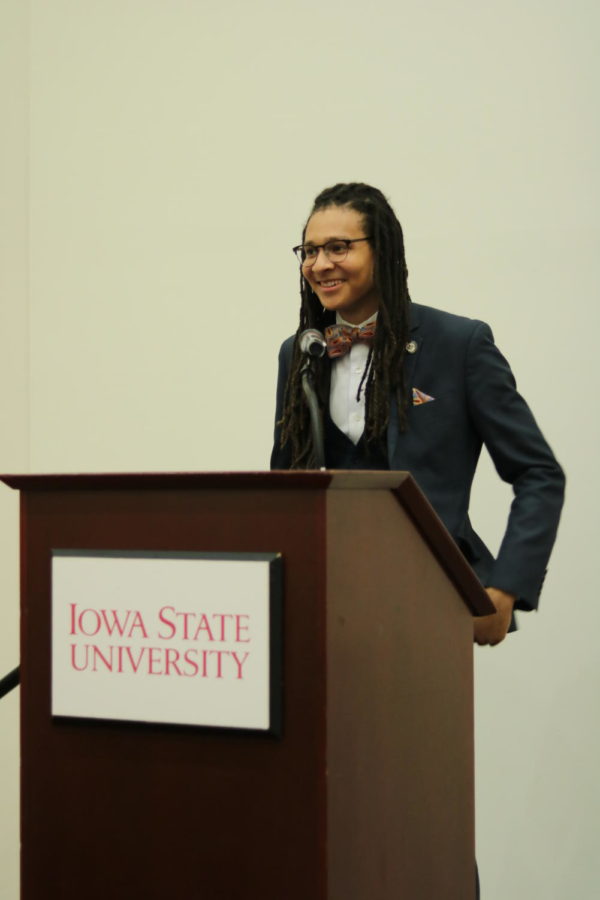Black Student Alliance highlights leadership strategies during panel
Student Government President, Julian Neely smiles as the room gives him as standing ovation moments after being sworn into office on Thursday, April 12.
August 28, 2018
Leadership, adversity and perseverance.
These are a few of the many topics the Black Student Alliance (BSA) discussed Tuesday that focused on the struggles, experience and advice panelists had to offer as black individuals in leadership positions.
The panel, held in Marston Hall, included six panelists that came from a variety of positions and majors, including alumni, faculty, staff, and students.
Jon Marion, panelist and founder of Inclusive Cultural University, offered his own definition of leadership.
“It’s really about connecting with people; being able to relate,” Marion said. “There’s many facets to it, but it just depends on your background and how relatable you are to other people.”
Marion graduated from Iowa State with a degree in marketing and international business.
Ashley Dorris, leadership and service coordinator for the Memorial Union, offered a personal application of leadership.
“Leadership is, basically, just being a person who is wanting to make a difference,” Dorris said.
The panelists discussed difficulties they experienced with coming into their roles, including times when they felt their racial identity played a role in the difficulties they experienced.
Whitney Mason, junior in public relations and editor of Voices at the Iowa State Daily, said she experienced struggles when she felt that she always had to prove herself more and was often under appreciated at the Iowa State Daily.
Julian Neely, president of Student Government and junior in journalism and mass communication, spoke about the difficulties he experienced because of his race while seeking office.
“When I began to campaign for president, I had to remind myself that I’m on a larger scope because I identify as black, and my skin communicates that to folks as well,” Neely said. “Folks are waiting for me to make a mistake. They’re waiting for me to slip up so they can hold me accountable.”
Andrew Whitehead, senior in computer engineering, is president of The National Society of Black Engineers and social chair for the Society of Hispanic Professional Engineers. Whitehead elaborated on his own initial struggles when seeking leadership at Iowa State.
“Coming into my freshman year, I was an extremely timid person,” Whitehead said. “I knew that I had a passion for people and a passion for trying to help other folks strive, but I didn’t know how to express that vocally.”
Dorris said that finding and creating a community and support system was a challenging, but important part of navigating her professional world. She encouraged attendees to build their own support systems and communities wherever they go.
Panelists discussed their sources of inspiration for seeking leadership as well.
A’Lece Moore, president of the Womxn of Colour Network and a senior in biology, was a panelist and said many of her upperclassmen friends, peers and mentors she interacted with as a freshman inspired her to seek out leadership roles.
Mason shared what encouraged her to seek a leadership role at Iowa State.
“I thought that there was definitely a lack of diversity and coverage of diversity,” Mason said.
Kevin Wilson, junior in event management, said that one of his favorite portions of the event was an audience question and discussion point about how to further unite Iowa State’s black students and further foster the community and support network.
“I did really appreciate how you really get a varied perspective of how they walk in their roles,” said Alexis Holmes, freshman in pre-business.
















